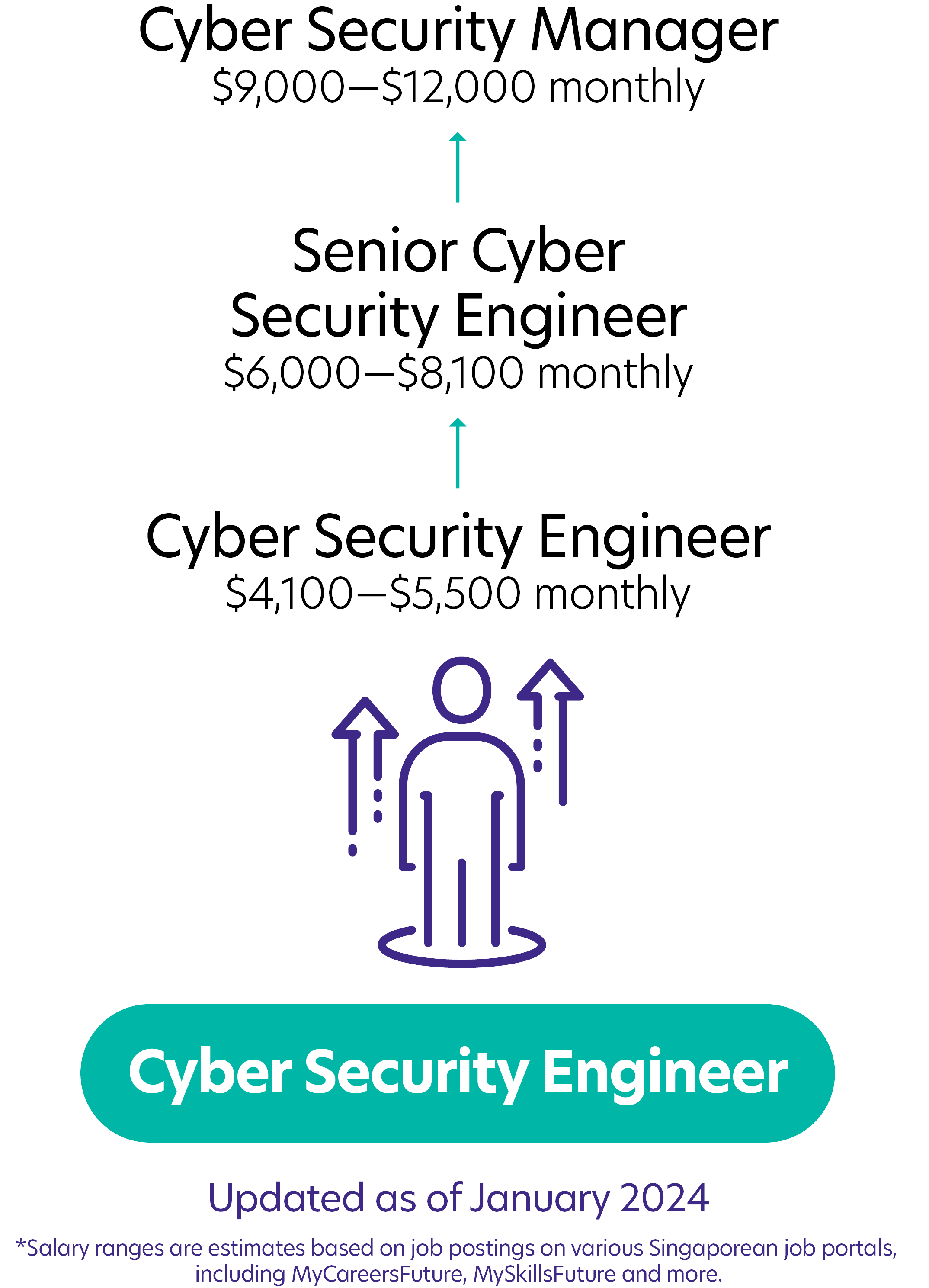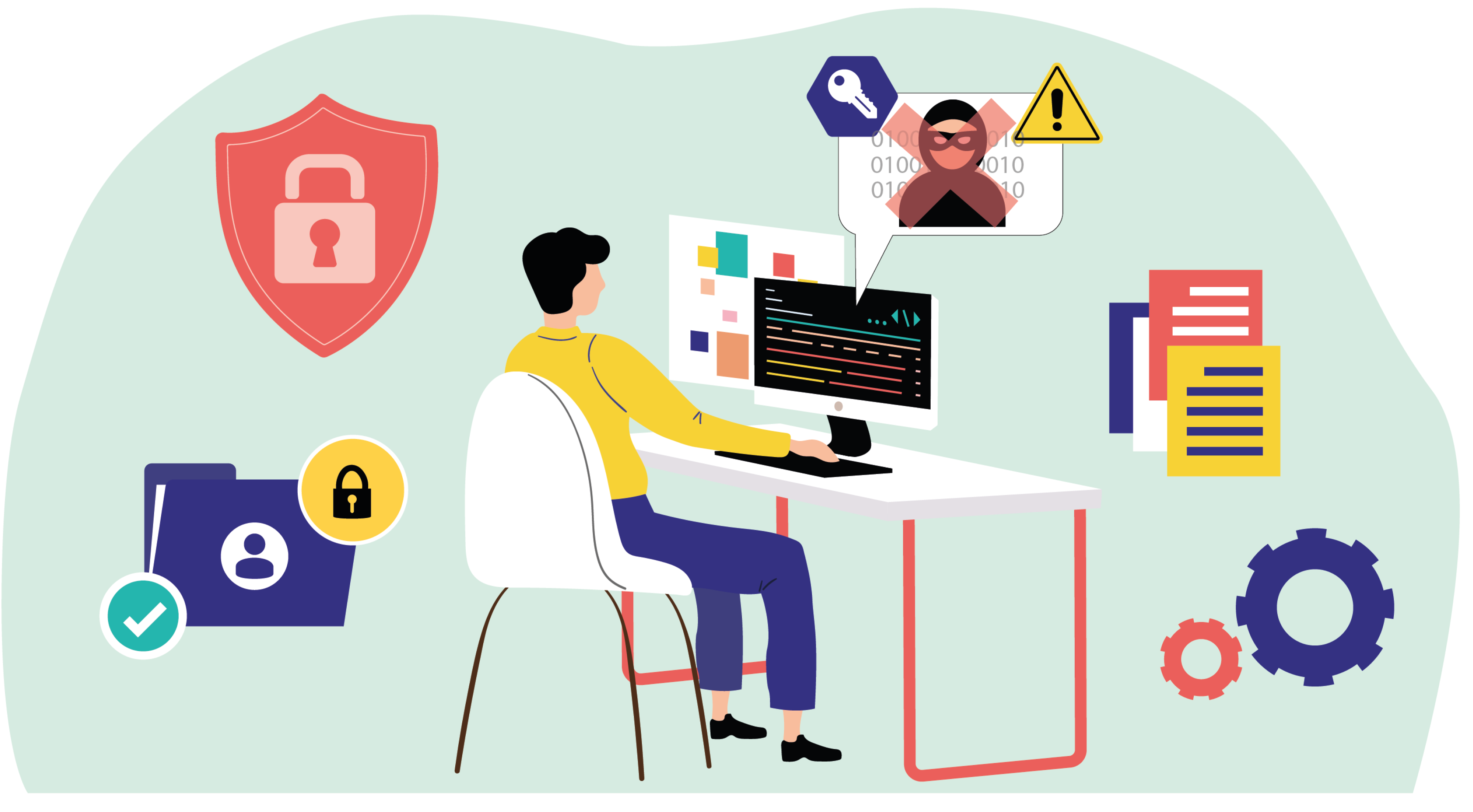
Cybersecurity Engineers build technologies to keep computer architecture safe. They implement and test new security features, plan computer and network upgrades, troubleshoot, and respond to security incidents.
Cyber Security Engineer Job Description
- Conduct rigorous security evaluations and code reviews to identify potential vulnerabilities.
- Investigate emerging hacking techniques and devise innovative solutions to counteract new security challenges.
- Execute thorough testing across digital infrastructures, pinpointing weaknesses.
- Work on technical responses to identified security gaps, enhancing system robustness.
- Continuously monitor software and systems for signs of unauthorised access or anomalous activities, ensuring a secure digital environment.
Note
Cyber Security Engineers may also work in environments that require additional industry certifications or government-issued security clearances.
What you should know about Cyber Security Engineer jobs in Singapore
Nature of Work
As Cyber Security Engineers, you’ll design, implement, and maintain systems to protect data and networks from cyber threats and breaches.Key Advice
You need to constantly stay updated on the latest security threats and the technology being developed to deal with them.-
Entry RequirementsEntry Requirements
- Minimally, you will need a bachelor's degree in Computer Engineering, Cybersecurity, Information Security or a related discipline.
- Career tracks that are more senior and management-oriented might require a master's or PhD in Security Engineering. Otherwise, you will need extensive work experience.
- Experience in developing and managing security protocols and policies.
- Familiarity with security standards such as ISO 27001/27002, ITIL, and COBIT.
- Ability to conduct forensic analysis and incident response to security breaches.
- Strong analytical skills for assessing the effectiveness of security measures.
-
Possible PathwayPossible Pathway

Skills you need to pursue a Cyber Security Engineer career in Singapore
 Hard Skills
Hard Skills
Writing Security Code in Languages
Proficiency in Python, C++, Java, Ruby, and Bash programming languages.Penetration Testing
Expertise in simulating cyber attacks to identify vulnerabilities in systems and networks.Operating Systems Knowledge
Deep understanding of Windows, MacOS and Linux for securing diverse computing environments.Problem-Solving
Ability to analyse and resolve complex security issues efficiently.Presentation Skills
Competence in clearly communicating security concepts and findings to various audiences.Management Skills
Aptitude for leading teams, managing projects, and coordinating security efforts effectively.Related Job Roles
Explore Other Programmes
Browse AllYou have bookmarked your first item!
Find it in My Discoveries with insights on your interests!



